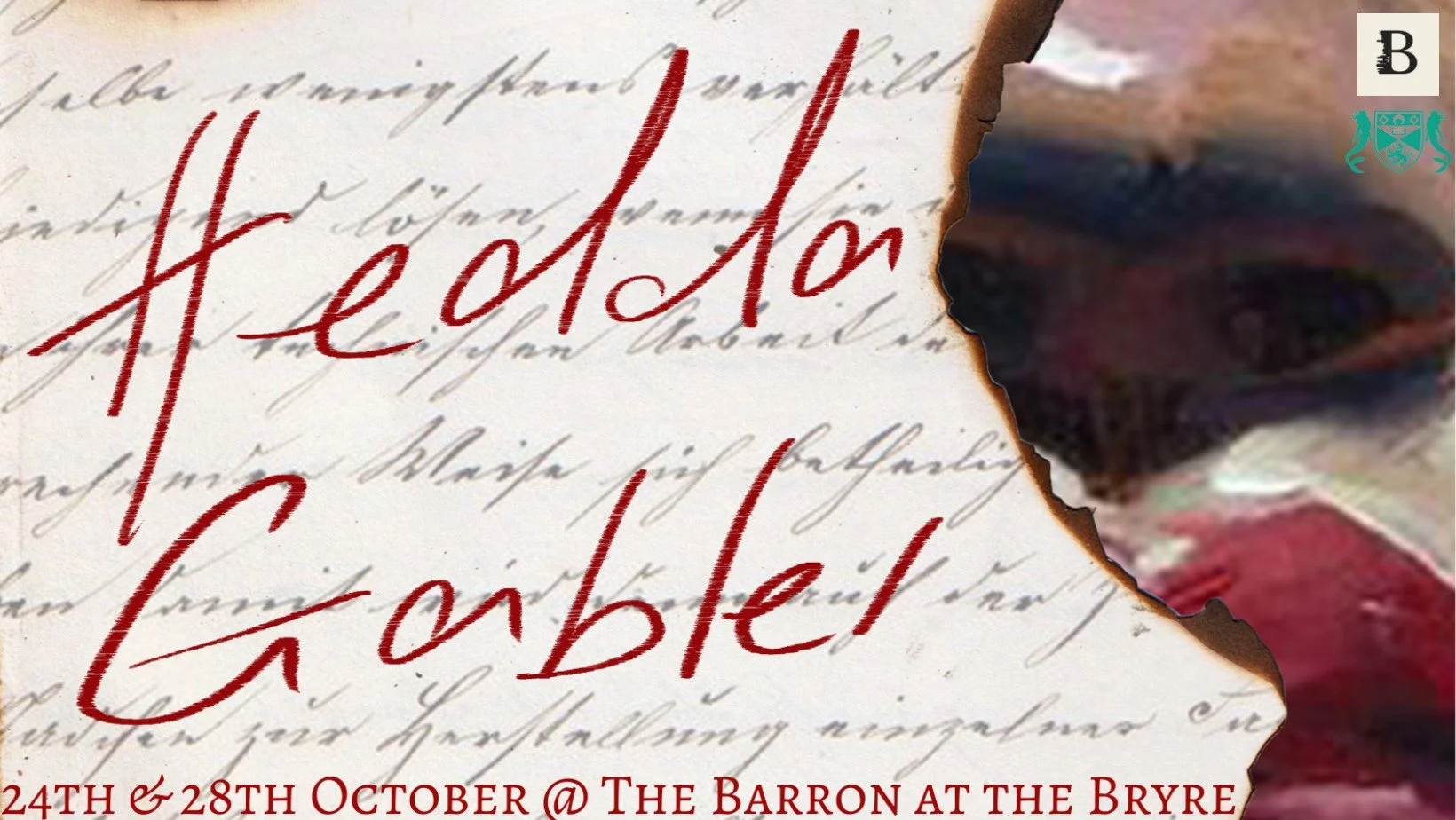Theatre Review: Hedda Gabler
HEDDA GABLER
Vine Leaves in her Hair
A Mermaids Production
24/10/22-28/10/22 The Barron at the Byre, St Andrews
Directed by: Hannah Savage
Produced by: Sarah Bailey
Written by: Henrik Ibsen
Reviewed by Iain Lynn
Soft pink light spills onto the stage. Gentle strings set the scene of chairs and tables framed by roses. The silence is broken by a bustling maid Berte (Ellie McKay) and an over-anxious aunt Juju (Louise Windsor). This opening establishes what this production of Hedda Gabler does best; setting a scene, creating an atmosphere, and piercing the status quo it establishes.
It soon becomes clear why Juju was quite so paranoid, as the all-powerful and unimpressed, Hedda Gabler (Natalie Westgor) enters. Westgor dominates the play as its titular character, with constant precision and presence as she allows the action to revolve around her. It is a joyous thing to watch. Accompanying Hedda is her scatter-brained new husband Jorgen (Emma Croft-Smith), an oblivious academic. Croft-Smith’s Jorgen presents a natural foil to Hedda, Jorgen explodes across the stage in activity, whilst Hedda commands the space with static power. The atmosphere crafted by the two newlyweds is broken by Brack (Molly Luckhurst), a sleazy Judge whose desire to own Hedda is clear. Luckhurst is fantastically appalling as Brack, the subtle consequence of her words never seem far from her mind.
In this now tense domestic scene comes Thea (Jo Affleck), who does a wonderful job as vulnerable putty in Hedda’s hands – Affleck presents the first genuine emotional moment of the play, as she is overcome with uncertainty. What could have been a poorly executed tonal shift from snappy comedy to intense emotional drama is seamlessly played out. This is testament to the quality of director Hannah Savage, who correctly focuses her production on her talented cast, and the brilliant playscript that is Hedda Gable. Savage’s direction allows the nuances of the piece to come to the fore in a celebration of human drama.
We are introduced to Jorgen’s rival, fellow academic Eilert (Emily Speed). Their entrance breaks up the monopoly of power that Hedda exercises. Speed is a superb force of sheer energy throughout the play. Once all the characters have been fully introduced, the audience is then treated to a powerful ensemble, martialed by the ever-present and commanding Hedda Gabler.
Hedda Gabler was not simply well acted but was complimented by the well-dressed set and cast, which gave a real sense of unity throughout the production. Hedda Gabler has been, without a doubt, my favourite piece of student theatre that I have seen so far in St. Andrews. From its tight direction to its confidence in the script it is a testament to the talented production team and cast.

